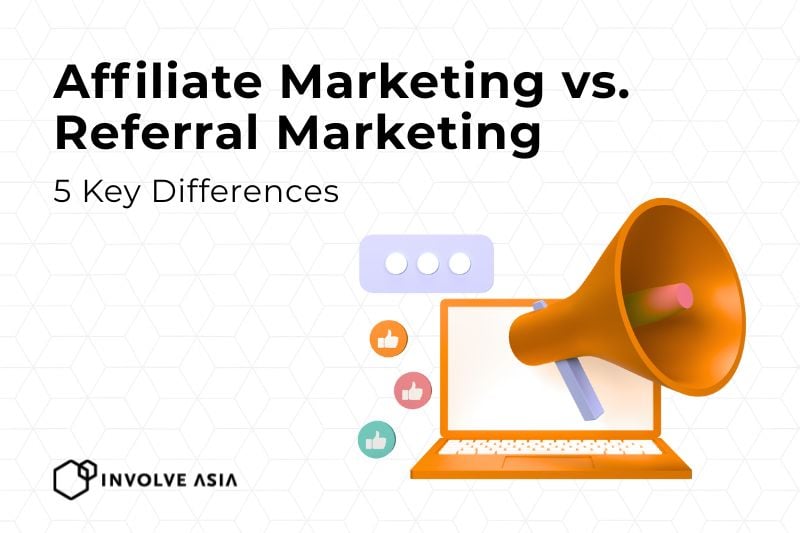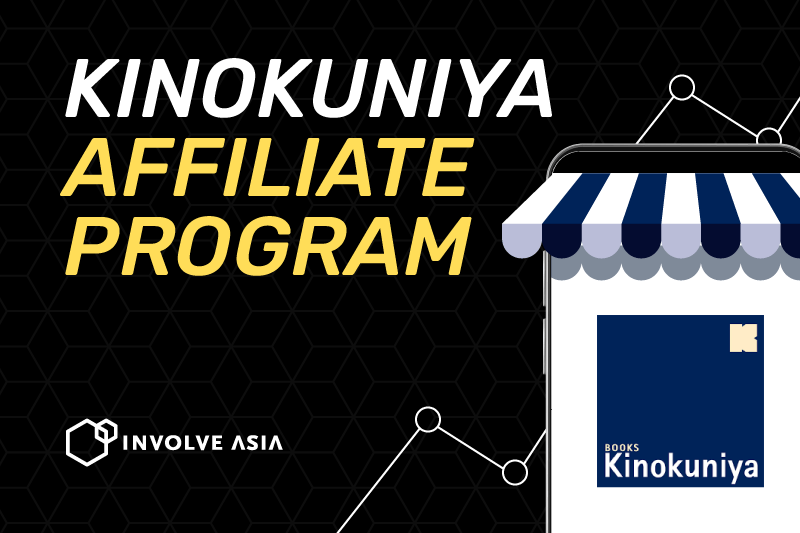If you’re looking to grow your business or earn money online, you’ve probably come across affiliate marketing and referral marketing. Both strategies are designed to increase sales through recommendations, but they operate in distinct ways.
Affiliate marketing relies on influencers, bloggers, and digital marketers to promote products in exchange for commissions. In contrast, referral marketing encourages existing customers to recommend a brand to their friends and family in return for rewards.
So, which one is more effective? Let’s break it down and find out which model suits your business goals or monetization strategy best.
What is Affiliate Marketing?
Affiliate marketing is a performance-based marketing strategy where individuals (affiliates) promote a company’s products or services and earn a commission on each sale, lead, or click generated through their unique affiliate tracking link.
This model allows brands to expand their reach while only paying for actual conversions.
How Affiliate Marketers Earn Money
Affiliate marketers earn through different commission structures, including:
- Pay-Per-Sale (PPS) – Earn a percentage of each sale made through your affiliate link.
- Pay-Per-Click (PPC) – Get paid based on the number of clicks your link receives.
- Pay-Per-Lead (PPL) – Earn commissions when users sign up, register, or complete a specific action.
Benefits of Affiliate Marketing
Affiliate marketing is a profitable and scalable method of online income generation, with key benefits including:
- Passive income potential – Once established, your content can generate revenue 24/7.
- Scalability – Promote multiple products across different niches, allowing you to diversify earnings.
- Low startup costs – No need to develop a product, handle inventory, or provide customer service.
- Performance-based payouts – You only get paid for actual conversions, making it a win-win model for businesses.
Challenges of Affiliate Marketing
Despite its benefits, affiliate marketing comes with certain challenges:
- High competition – Many affiliates promote the same products, making SEO and content marketing essential.
- Delayed payments – Some programs take 30-90 days to release earnings.
- Traffic dependency – Without a strong online presence and consistent traffic, commissions remain low.
- Platform dependency – If a company changes commission rates or cancels an affiliate program, earnings can drop.
What is Referral Marketing?
Referral marketing is a customer-driven marketing strategy where businesses encourage satisfied customers to refer their friends and family in exchange for rewards. It capitalizes on word-of-mouth marketing, which is one of the most trusted forms of advertising.
How Referral Marketing Works
- A customer receives a unique referral link from the brand.
- They share it with their friends, family, or social media network.
- When the referred person makes a purchase or signs up, both the referrer and the new customer receive rewards (discounts, cashback, or store credits).
- The process repeats, increasing customer retention and acquisition.
Benefits of Referral Marketing
Referral marketing offers cost-effective customer acquisition with high conversion potential:
- High conversion rates – Consumers trust recommendations from friends and family more than traditional advertising.
- Low acquisition costs – Encourages organic growth without the need for expensive marketing campaigns.
- Encourages brand loyalty – Customers who refer others are more likely to stay engaged with the brand.
- Easy to implement – Many businesses use referral program software to automate the process.
Challenges of Referral Marketing
While effective, referral marketing has its limitations:
- Limited reach – Growth depends on how actively customers refer others.
- Customer dependency – The success of a referral program relies on customer engagement.
- Difficult tracking – Some customers may forget to use their referral link or code properly.
- Lower scalability – Unlike affiliate marketing, referral marketing only grows within a business’s existing customer base.
Key Differences: Affiliate Marketing vs. Referral Marketing
| Factor | Affiliate Marketing | Referral Marketing |
| Target Audience | Bloggers, influencers, marketers | Existing customers, loyal users |
| Incentives | Cash commissions | Discounts, store credits, cashback |
| Reach | Unlimited, global | Limited to customer’s network |
| Scalability | High | Moderate |
| Effort Required | Requires content creation, SEO, and ads | Relies on customer-driven recommendations |
| Trust Factor | Medium (depends on content authority) | High (friends and family recommendations) |
Which Model is Better for Businesses?
- Affiliate marketing is best for businesses looking to expand their brand presence through influencers, bloggers, and digital marketers.
- Referral marketing works well for brands that rely on customer satisfaction, repeat purchases, and word-of-mouth advertising.
Which Model is More Profitable?
- Affiliate marketing generates higher earnings as affiliates can promote products globally.
- Referral marketing is more cost-effective since it leverages existing customers rather than paid advertising.
How to Get Started with Affiliate Marketing
- Choose a profitable niche – Tech, fitness, finance, etc.
- Join affiliate programs like Involve Asia.
- Create content – Blog posts, YouTube videos, or social media promotions.
- Drive traffic – Utilize SEO, paid ads, and email marketing.
- Optimize and scale – Track performance, improve conversions, and scale.
How to Get Started with Referral Marketing
- Set up a referral program – Use software to automate the process.
- Define incentives – Offer discounts, cash rewards, or store credits.
- Encourage sharing – Provide customers with easy-to-share referral links.
- Track and optimize – Analyze performance and referral success rates.
- Engage customers – Keep referrers motivated with exclusive rewards.
Can You Use Both Affiliate and Referral Marketing?
Yes! Many businesses combine affiliate and referral marketing to maximize customer acquisition. Affiliate programs attract new leads, while referral programs retain and engage existing customers.
Conclusion
Both affiliate marketing and referral marketing are effective growth strategies. If you’re looking for broad audience reach, opt for affiliate marketing. If you want to increase brand loyalty and leverage word-of-mouth, go for referral marketing.
The best approach? Combine both!
👉 Sign up here to start an affiliate marketing program with Involve Asia
Frequently Asked Questions (FAQs)
What is the difference between marketing and affiliate marketing?
Marketing is a broad term that includes various strategies to promote products, services, or brands. It encompasses advertising, content marketing, social media marketing, email campaigns, and SEO to attract potential customers.
Affiliate marketing, on the other hand, is a specific type of marketing where individuals or publishers promote products through unique affiliate links and earn a commission for each sale, lead, or click. While marketing can involve multiple promotional techniques, affiliate marketing focuses on driving sales through third-party partnerships and performance-based rewards.
What are the three types of affiliate marketing?
There are three types of affiliate marketing:
1. Unattached Affiliate Marketing – The affiliate has no direct connection with the product and simply drives traffic to earn commissions, often using paid ads or SEO strategies.
2. Related Affiliate Marketing – The affiliate promotes products within their niche that align with their audience’s interests, such as a fitness blogger promoting workout supplements.
3. Involved Affiliate Marketing – The affiliate personally uses and endorses the product, building trust with their audience. This method is highly effective due to authentic recommendations and stronger audience engagement.
Is affiliate marketing the same as referral marketing?
No, affiliate marketing and referral marketing are different. Affiliate marketing involves third-party affiliates (bloggers, influencers, publishers) promoting products in exchange for cash commissions. It’s designed to reach a wider audience through online channels.
Referral marketing, on the other hand, relies on existing customers recommending products to their friends and family in return for discounts, cashback, or store credits. The main difference is who promotes the product—affiliates are independent marketers, while referrers are loyal customers incentivized to spread the word.
What is the difference between an affiliate link and a referral link?
An affiliate link is a unique tracking URL provided to affiliates, allowing businesses to track sales, clicks, and conversions driven by affiliate marketers. It is used for affiliate marketing programs and typically rewards cash commissions.
A referral link, on the other hand, is given to existing customers who refer friends or family to a brand. Referral links offer discounts, cashback, or store credits instead of cash commissions. Affiliate links target a broader audience, while referral links focus on personal networks to drive customer loyalty and word-of-mouth growth.







